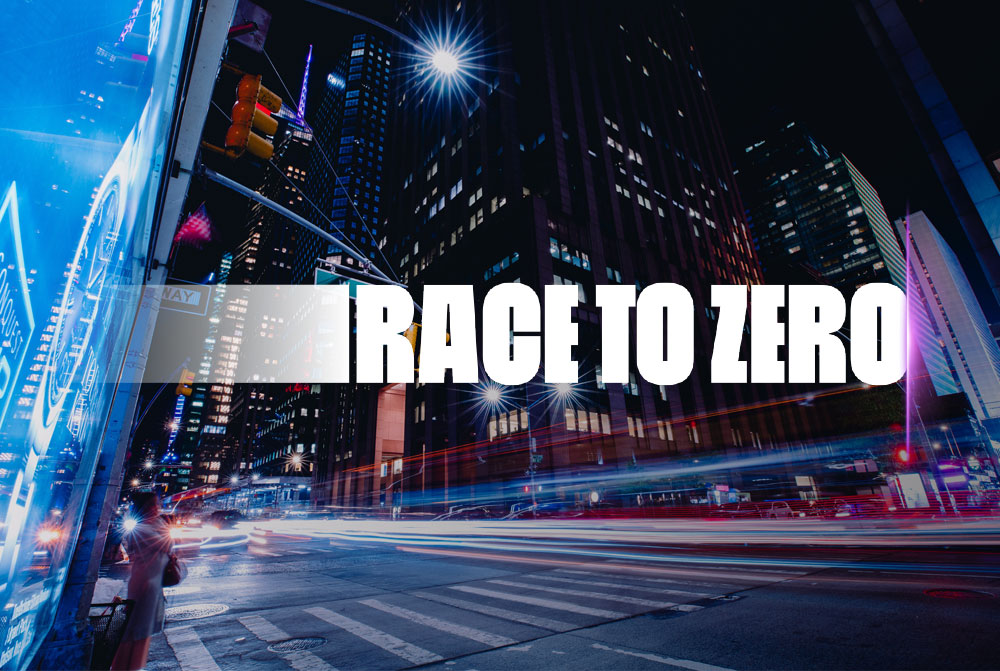Zero-Carbon Transition – March signals of change
We Mean Business coalition
Here are just some of the signals of change from the past month across transport, energy, industry, land use and the whole economy, demonstrating the transition to a resilient and inclusive zero-carbon future is accelerating.
Zero-Carbon Economy
UN secretary-general António Guterres has called for the cancellation of all coal projects. Japan plans to set a bolder 2030 emissions reduction target before the June G7 summit. The EU approved a green transition fund to help regions wind down their coal, peat and oil shale sectors and replace them with low-carbon industries and jobs. The UK is now halfway to meeting its net-zero emissions target. US climate change envoy John Kerry urged the world’s top polluters to reduce CO2 immediately, while new analysis suggests the US should aim for a national target of cutting emissions by about 60% by 2030 to meet climate goals. India is considering setting net zero emissions goal by 2050, a decade before China, while the country’s state of Chhattisgarh pledged to achieve net-zero carbon emissions by 2050, becoming the first Indian health system to endorse UNFCCC’s Race to Zero Campaign. Major pension funds that own assets worth $1.2 trillion have committed to cutting the carbon emissions of their portfolios to net zero by 2050 or earlier. 21% of the world’s 2,000 largest public companies, representing sales of nearly $14 trillion, now have net zero commitments.
Zero-Carbon Energy
German electric utility company E.ON, UK gas distribution company Cadent and ReNew Power – India’s leading solar power developer – joined the Business Ambition for 1.5°C campaign. One of India’s largest electric utilities The Tata Power Company has committed to set a science-based target. More than 50 companies from the RE100 initiative urged the Japanese government to increase its renewable energy target to 50%. The commissioning of new wind turbines globally surged by a record 59% in 2020, while China led the world’s biggest ever increase in wind power capacity. Energy storage systems grew by 182% in the US between Q4 and Q3 2020. Solar installations are projected to quadruple by 2030, while Africa’s wind potential could cover the entire continent’s electricity demand 250 times. The Climate Group’s RE100 initiative has welcomed five new members including Taiwan’s Delta Electronics and US pharmaceutical group Zoetis and South Korean consumer group AmorePacific. Hungary brought its coal exit forward by five years to 2025, while the UK is closer to its goal of phasing out coal by 2024 with the closure of its second to last coal-burning power station. And Europe is halfway towards closing all coal power plants by 2030.
Zero-Carbon Transport
French car manufacturer Groupe Renault and Dutch maritime company Van Oord both joined the Business Ambition for 1.5°C campaign. The cost of lithium-ion batteries has fallen by 97% over the past three decades, a new MIT study shows. EVs are now included into the formula for calculating inflation in the UK, which is a signal that they “have gone mainstream”. Swedish auto giant Volvo Cars has committed to only selling 100% electric vehicles by 2030, while phasing out all models with an internal combustion engine. BMW expects at least half of its sales to be EVs by 2030. Volkswagen plans six battery factories across Europe by 2030, which would produce cells for almost 5m cars annually. LG will invest $4.5bn to meet growing US EV demand. FedEx has committed to become carbon neutral by 2040 with a clear pathway to 100% EVs by then and by offsetting all of its emissions from aviation until alternative fuel technologies scale up. And US researchers claim making jet fuel from food waste would cut GHG emissions by 165% compared to fossil energy and aim for test flights in 2023.
Zero-Carbon Built Environment & Heavy Industry
Colombian cement company Cementos Argos, UK residential property development company Barratt Developments, German chemicals company MATSEN CHEMIE and respectively UK and Irish construction engineering companies Troup Bywaters + Anders and Johnson Controls International joined the Business Ambition for 1.5°C campaign. The UK aims to cut industrial pollution by two-thirds within the next 15 years as part of its Industrial Decarbonization Strategy, with plans for “steel-makers to reach net zero by 2035”. The International Aluminium Institute calls on the industry to cut GHG emissions by 77% by 2050. Researchers at the University of Michigan are working on composites that produce a bendable concrete material that could dramatically cut global emissions. The real estate manager Nuveen – with a $184bn property portfolio – committed to set net zero emissions targets by 2040.
Zero-Carbon Land Use & Nature Based Solutions
JBS, one of the world’s leading food companies, committed to achieve net-zero GHG emissions by 2040. Beyond Meat has agreed deals with McDonald’s, KFC and Pizza Hut to extend plant-based alternatives at the fast-food chains, while Burger King will launch new vegan and vegetarian dishes. L’Oréal is planning to derive nearly all its ingredients from renewable plant sources and abundant minerals by 2030. New research shows the economic benefits of protecting nature “outweigh” those of exploiting it. Unilever has become one of the first multinational companies to publish a corporate net zero action plan for oversight by its shareholders. UK supermarket chain J Sainsbury, Sri Lankan agriculture group Talawakelle Tea Estates and Brazilian forestry group Klabin have all joined the Business Ambition for 1.5°C campaign. Seagrass, mangrove swamps and tidal marshes can soak up more carbon dioxide than rainforest, making these coastal blue-carbon ecosystems particularly effective sinks. And protecting the world’s oceans from fishing, drilling and mining could safeguard imperilled species and sequester vast amounts of carbon.

